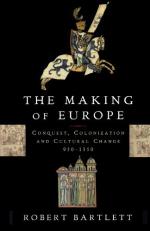|
This section contains 1,002 words (approx. 4 pages at 300 words per page) |

|
Methodist Piety and Good Works. Methodism had its origins in a prayer and Bible-study group founded by the recently ordained Anglican clergyman John Wesley (1703- 1791) at Oxford around 1729. Detractors of the group called the group "Methodists" because of their systematic approach to their devotions, and the term was subsequently applied to all Wesley's followers. While he and his brother Charles were serving as Anglican missionaries in the American colony of Georgia during the years 1735- 1737, Wesley, who advocated spiritual self-discipline and the performance of charitable acts, met and was deeply influenced by the Moravians, a German pietist sect that stressed the individual's personal relationship to God. In 1739 Wesley began a lifetime of itinerant preaching, traveling some 250,000 miles on foot and horseback throughout England, Wales, Scotland, and Ireland by the time of his death in 1791.
Methodist Organization. Wesley organized the people who...
|
This section contains 1,002 words (approx. 4 pages at 300 words per page) |

|




